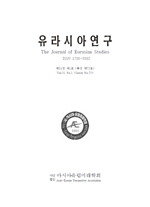- 영문명
- A Theoretical Reconstruction of Korean Language Education for International Students Based on Emotional Education and the Concept of Settlement
- 발행기관
- 아시아.유럽미래학회
- 저자명
- 이건근(Geongeun Lee)
- 간행물 정보
- 『유라시아연구』제22권 제2호, 271~285쪽, 전체 15쪽
- 주제분류
- 사회과학 > 사회과학일반
- 파일형태
- 발행일자
- 2025.06.30

국문 초록
한국은 학령인구 감소와 지방대학의 위기, 외국인 유학생의 유출이라는 삼중의 구조적 위기를 동시에 맞이하고 있다. 특히 외국인 유학생 정책은 유치 중심의 양적 확대에 집중되어 왔으며, 정주와 통합을 위한 질적 교육과정의 설계는 매우 미흡한 실정이다. 현재의 한국어교육은 학문 목적 중심의 기능주의적 틀에 갇혀 있어 유학생의 정서적 통합과 시민적 소속감 형성에 한계를 보인다. 이러한배경에서 본 연구는 감성교육, 세계시민교육, 정주 개념을 이론적으로 통합하여 유학생 한국어교육을시민교육으로 재구성하고자 한다. 본 연구의 목적은 마사 누스바움(Martha Nussbaum)의 감정 윤리학을 중심으로 한 감성교육 이론을 한국어교육과정에 반영함으로써, 외국인 유학생이 단순한 언어 사용자에 그치지 않고 지역사회의 시민적 주체로 성장할 수 있도록 하는 교육적 전환의 필요성과 가능성을제시하는 데 있다. 이를 위해 감성교육, 세계시민교육, 정주개념에 대한 문헌연구를 수행하고, 현행 정책 자료 및 관련 선행연구를 비판적으로 분석하였다. 연구 결과, 현재 한국어교육은 언어 능력 함양에집중되어 있으며, 유학생의 정주를 위한 정서적 교육, 공감 능력 배양, 지역사회 문화 이해가 크게 부족한 것으로 나타났다. 누스바움의 감정 윤리학은 감정을 단순한 비이성적 충동이 아닌 인지적·도덕적 판단의 구성 요소로 보고, 감정에 기반한 시민교육의 정당성과 실천 가능성을 제시한다. 또한, 세계시민교육의 탈국가주의적 관점과 정주개념은 유학생을 시민으로서의 학습자로 인식하게 하며, 지역 기반언어교육의 새로운 방향을 모색하게 한다. 본 연구는 유학생 한국어교육을 감성적 시민성 형성의 과정으로 재구성하고자 하는 이론적 시도를 통해, 향후 감정 기반 한국어교육과정 개발의 철학적 토대를 제공한다. 더불어 지역대학의 생존 전략으로서 유학생의 정주를 위한 감성교육 모델 구축의 필요성을 강조함으로써 정책 및 교육 실천의 통합적 시야를 확보한다는 점에서 의의를 갖는다.
영문 초록
Korea is currently facing a triple crisis: a drastic decline in school-age population, the structural vulnerability of local universities, and the increasing outflow of international students. Existing policies for international students have primarily focused on quantitative expansion and recruitment, with little attention given to their settlement and integration. Korean language education remains trapped in a functionalist paradigm centered on academic purposes, thereby failing to foster emotional integration or a sense of civic belonging among learners. Against this backdrop, this study aims to reconstruct Korean language education for international students through an integrative framework of emotional education, global citizenship education, and the concept of settlement. The study particularly focuses on incorporating Martha Nussbaum’s theory of emotional ethics into the Korean language curriculum. By recognizing emotions as cognitive and moral components rather than irrational impulses, Nussbaum presents a radical shift in educational philosophy. Through literature review and critical analysis of current policies and prior research, this study explores how an emotion-based civic education model can enhance the social and cultural integration of international students. Findings reveal that the current Korean language education system lacks emotional, empathetic, and cultural dimensions necessary for fostering students’ long-term settlement and identity formation. Nussbaum’s emotional education philosophy offers a solid theoretical foundation for cultivating “emotional citizenship,” while global citizenship education and the concept of settlement provide pedagogical tools to position international students as civic learners. This research lays the groundwork for developing an emotional Korean language curriculum in future studies and emphasizes the urgent need for emotion-centered and ethical educational reform to support international students' integration into local communities.
목차
Ⅰ. 서론
Ⅱ. 마사 누스비움의 감성 교육철학
Ⅲ. 세계시민교육과 정주 개념의 이론적 통합
Ⅳ. 기존 한국어교육의 한계와 감성적 전환의 필요성
Ⅴ. 감성적 시민성을 위한 한국어교육의 이론적 재구성
Ⅵ. 결론
참고문헌
키워드
해당간행물 수록 논문
참고문헌
최근 이용한 논문
교보eBook 첫 방문을 환영 합니다!

신규가입 혜택 지급이 완료 되었습니다.
바로 사용 가능한 교보e캐시 1,000원 (유효기간 7일)
지금 바로 교보eBook의 다양한 콘텐츠를 이용해 보세요!




